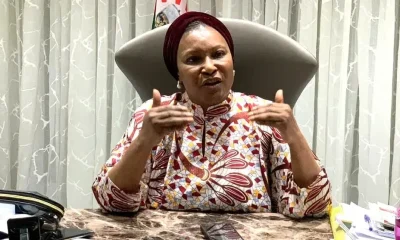Health
Health Education Can End Female Genital Mutilation — UNICEF

The United Nations Children’s Fund (UNICEF) says it is critical to continue teaching girls and women about the harmful effects of female genital mutilation (FGM) as the globe observed the International Day of Zero Tolerance for Girl Genital Mutilation on February 6.
According to UNICEF, daughters with educated moms were less likely to be cut than those whose mothers were not educated.
The World Health Organization (WHO) defines FGM as any procedure that involves the removal of all or part of the external female genitalia or any other harm to the female genital organs that is done for purposes other than medical ones.
Naija News reports that the practice according to WHO has no positive health effects on girls or women; instead, it increases the likelihood of neonatal mortality, troubles during labor, cysts, infections, and severe bleeding and urination issues.
According to a UNICEF report titled “Ending Female Genital Mutilation: Data that delivers change and results for girls and women,” over 35 per cent of girls in the Southeast between the ages of 0 and 14 are impacted by FGM, with the Southwest having a 30 per cent prevalence rate.
The report by UNIECF read, “Education is an important mechanism to increase awareness of the dangers of FGM and of groups that do not practice it. Education also fosters questioning and discussion and provides opportunities for individuals to take on social roles that are not dependent on the practice of FGM for acceptance. The link between FGM and the education of girls and women rests on the assumption that educated women, as opposed to those with little or no education, will be less likely to have their daughters cut. One possible scenario is that, while in school, girls develop social ties with peers and mentors who are opposed to FGM.
“This could provide a reference group for which no normative sanctions exist for failing to comply with FGM. Educational settings may also provide an opportunity for discussion and a social environment conducive to the formation of new ideas. Additionally, educated women may have greater exposure to intervention programmes, media messages, and local and international discourse that denounce the practice, potentially creating sanctions for continuing FGM.”
In an interview, the Chief of UNICEF Lagos Office, Celine Lafoucriere, advocated for increased legal action, lobbying, and education around female genital mutilation.
She said, “There is a need for increased awareness about the detrimental effects of FGM and to promote alternative cultural practices that respect the rights and dignity of girls. Proper enlightenment and education can eradicate the harmful tradition to ensure a brighter future for girls by increasing awareness about the detrimental effects of FGM and promoting alternative cultural practices that respect the rights and dignity of girls.”












